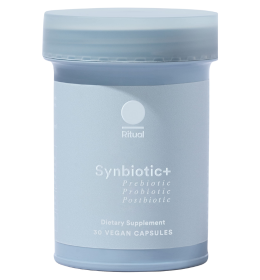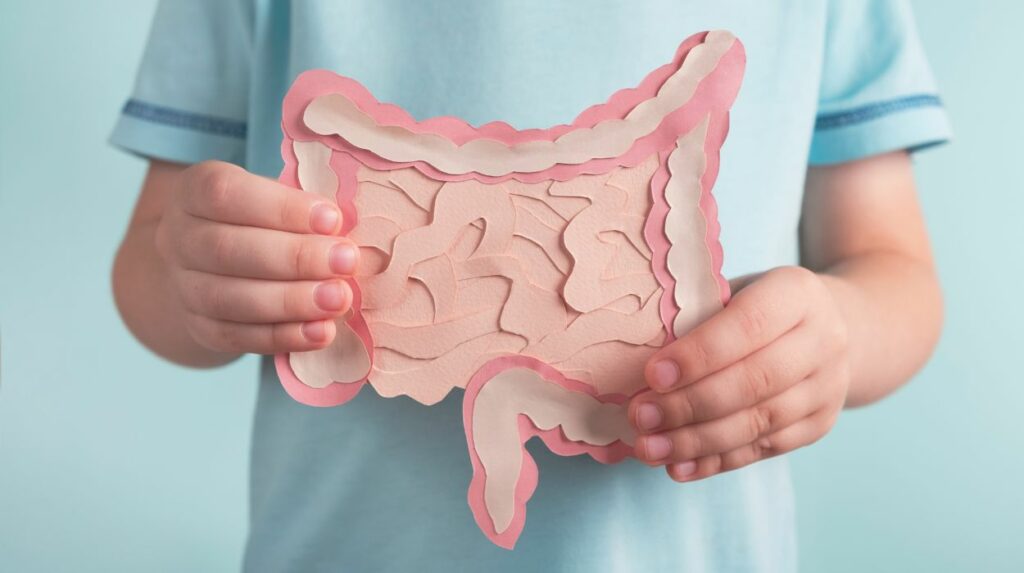 Is a colon cleanse safe? Here are the facts. Photo: Ba Le Ho
Is a colon cleanse safe? Here are the facts. Photo: Ba Le HoWhether you’re preparing for a medical procedure or seeking to improve your digestive health, you might ask yourself, “Is a colon cleanse safe?” The answer depends on the type of cleanse you’re considering.
The term colon cleanse can refer to colon hydrotherapy, also known as a colonic, or to the use of supplements that help clean out the bowels. In this guide, we’ll explore the subject of colon cleanses to determine what they are, how they work, and if they’re safe.
Is A Colon Cleanse Safe?
It depends. Colon cleansing procedures like colon hydrotherapy are generally safe when properly administered but come with some risk for side effects, especially in some population groups. The safety of colon cleansing supplements depends on the quality of the product, the method of administration, and the ingredients included.
Is A Colon Cleanse Safe?
Is a colon cleanse good for you? The answer is unclear. There is limited scientific evidence to support the purported benefits of colon cleansing, and the side effects can be serious.
The gut is home to trillions of microbial cells, including beneficial bacteria that help maintain the health[1] and proper function of the digestive system. Colon cleansing products and colonic irrigation can interfere with the balance of healthy and harmful bacteria in the gut.
FEATURED PARTNER OFFER

Ritual Synbiotic+
- 3-in-1 formula: prebiotics, probiotics, and probiotics
- Supports a balanced gut microbiome
- Supports bloating, gas, and diarrhea
- Supports the growth of beneficial gut bacteria
- Vegan and Third-party tested
What Is A Colon Cleanse?

The term colon cleanse may refer to a clinical procedure or using supplements to remove toxins and eliminate waste from the gastrointestinal system.
One such cleanse is colonic hydrotherapy or colonic irrigation, which involves flushing fluid through the colon to remove waste. This procedure is a standard method of preparation for colonoscopy[2] procedures and screenings for colorectal cancer, but it also has a long history of use among alternative medicine practitioners. The theory is that cleansing the colon helps eliminate toxins and may provide additional benefits such as weight loss, improved digestion, and even clearer thinking.
As an alternative to colon hydrotherapy, colon cleansing can also be accomplished by taking supplements to stimulate bowel movements. These supplements typically contain natural laxatives like Cascara sagrada or fiber sources like psyllium husk.[3]
Benefits Of Colon Cleanse
Colon cleanses are often described as a tool for improving gut health by removing accumulated waste and toxins from the digestive tract. Some cleansing products claim to help you lose weight, boost immune system health, increase energy levels, and improve brain function. Unfortunately, many of these benefits have little to no scientific support.
Improved Digestive Health
While colon cleansing may not flush toxins from your system, it may support the health of your digestive system and, thus, its natural detoxification abilities.[4] Suppose you experience frequent irritable bowel syndrome symptoms such as constipation, diarrhea, severe abdominal pain, or gas; some limited, controversial evidence suggests that colonic irrigation may help.[5]
Increased Energy Levels
Some evidence suggests fasting combined with colon cleansing enemas may support healthy microbial balance in the gut and improve energy metabolism.[6]
Relief From Constipation, Gas, And Bloating
Constipation is characterized by the slow or difficult movement of stool through the digestive tract. It has many causes, so addressing the underlying cause is the best treatment. A cleanse may help remove gas and reduce bloating by eliminating waste from the colon.
Improved Neurological Function
The link between gut and brain health is poorly understood. Still, some research suggests that cleansing the colon via enemas may improve symptoms of neurological conditions[7] like Parkinson’s disease. For example, transanal irrigations have been used successfully[8] in multiple sclerotic patients with impaired anal electrosensitivity.
Increased Efficacy Of Colon Cancer Screenings
Colorectal cancer is the fourth most common[9] type of cancer in both women and men. The Centers for Disease Control and Prevention recommends screenings for adults aged 45 to 75, and a colonoscopy is one of the most common methods. Cleansing the colon prior to colonoscopy is essential, and research shows that it helps improve the efficacy[10] of colon cancer screening.
Though the purported benefits of colon cleansing for weight loss and toxin removal are not supported by science, research shows that colonic hydrotherapy may benefit patients suffering from bowel dysfunction or gastrointestinal conditions. For example, one study found that regular colonic irrigation improved constipation,[11] incontinence, and quality of life in patients experiencing loss of bowel function following spinal cord injury.
Side Effects And Risks
Are colon cleanses safe? It depends on the method. Colonic irrigation is a clinical procedure that can be dangerous if performed incorrectly. Improper methods can increase the risk of bowel perforation or a tear in the colon walls. Other potential side effects may include abdominal cramping, stomach pain, bloating, or soreness.
Individuals with heart disease,[12] kidney disease,[13] or gastrointestinal conditions[12] should not undergo colonic irrigation. The procedure is also not recommended for individuals who have had surgery on their colon.
The risks and side effects[14] associated with colon cleansing supplements vary. Many products contain laxatives, with a risk of diarrhea, excessive fluid loss, dehydration, and imbalanced electrolyte levels.
A historical reference concluded[12] that there was no scientific rationale for routine colon cleansing for general health promotion; it could not be recommended for such purposes in 2010, and no recent studies have been found on its benefits despite its popularity in some wellness clinics.[15]
Ways To Cleanse Your Colon

If you’re concerned about the risks of colon hydrotherapy, the safest colon cleanse may involve a combination of dietary and lifestyle factors. The results may not be as immediate, but improving your overall health can also improve your colon health.
Here are a few methods to support natural colon cleansing:
- Eat more fiber. A low-fiber diet[16] may increase your risk for constipation, so consider eating more fiber-rich foods like whole grains, vegetables, and fruits.
- Stay hydrated. Water plays a key role in healthy digestion[17] and acts as a stool softener to help prevent constipation.
- Exercise regularly. In addition to supporting overall health, exercising can help stimulate bowel movements.
- Try over-the-counter laxatives. Laxatives, colon cleanse supplements, and detox supplements can help evacuate the bowels.
- Take probiotics. A healthy gut microbiome[18] is key for regular digestion, so consider taking daily probiotic supplements or eating more probiotic-rich foods.
Before making significant changes to your diet or taking supplements, talk to your physician or registered dietitian.
Conclusion
So, are colonics safe? Though generally considered safe when administered by a licensed professional, using disposable equipment in sanitary conditions, colonic procedures aren’t without risk. Colon-cleanse supplements also come with their own risks, depending on the quality of the product and the ingredients included.
If you’re struggling with digestive issues like chronic constipation, gas, or bloating, it’s best to talk to your doctor before undergoing any kind of treatment. Changing your diet and lifestyle may be the safest and most effective means of improving your digestive health.
Frequently Asked Questions
Waste material and the fluid used to flush the colon will come out during the cleanse. Though cleanses are often said to be effective in removing toxins, no concrete evidence supports this claim.
Because the cleanse removes waste from the colon, you may not experience a bowel movement for several days afterward. Going without a bowel movement for 1 to 3 days following a cleanse is normal.
There is no one-size-fits-all answer. Some people remain healthy without ever having colonic hydrotherapy. For many patients with compromised bowel function, enemas are necessary every few days.[11]
A colon cleanse simply removes waste from the large intestine. It does not cleanse the entire digestive tract.
Colonic hydrotherapy may be mildly uncomfortable, but it should not hurt. Cramping is a common side effect and is typically caused by the pressure created by gas in the colon.
A colon cleansing procedure typically costs $50 to $100.

